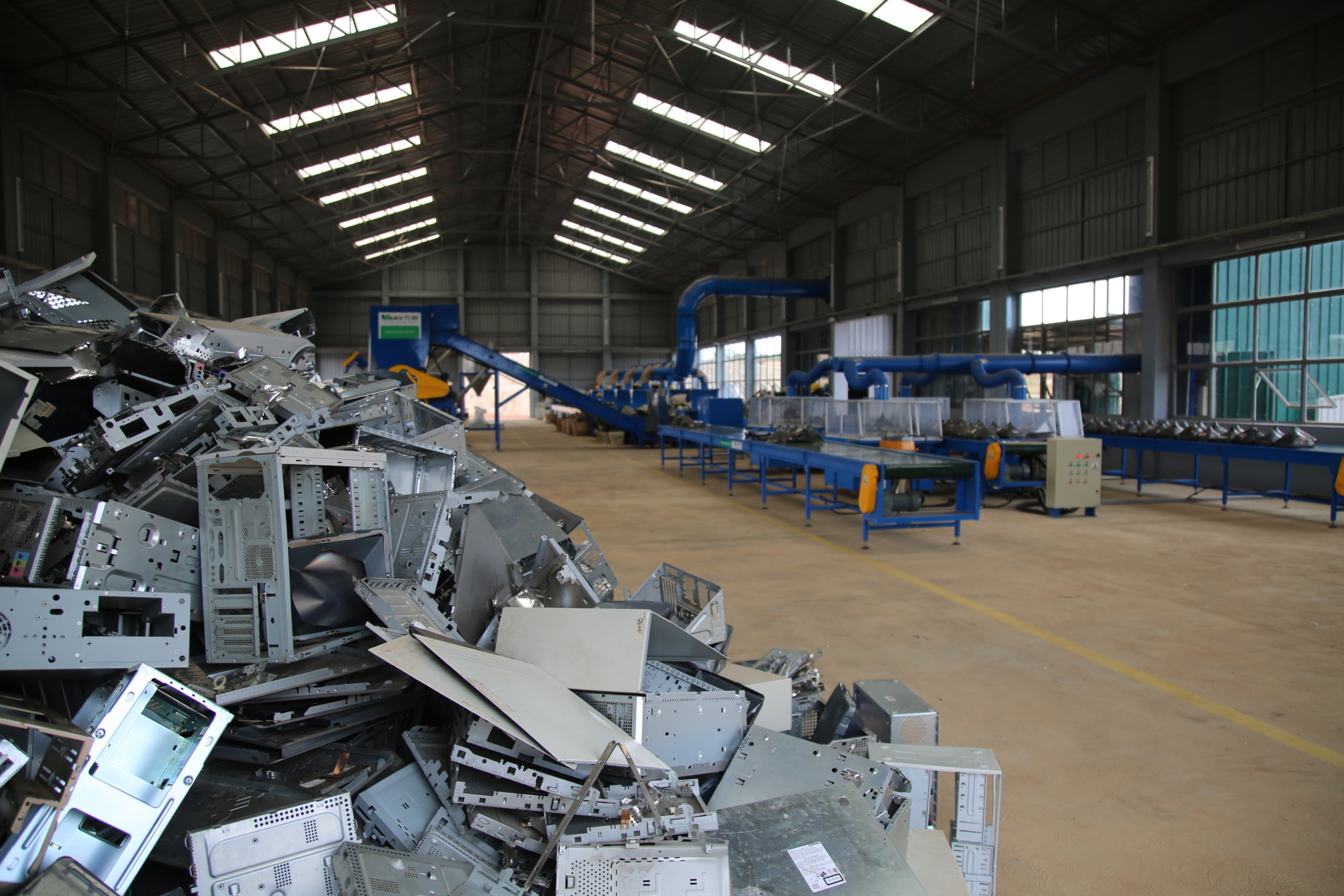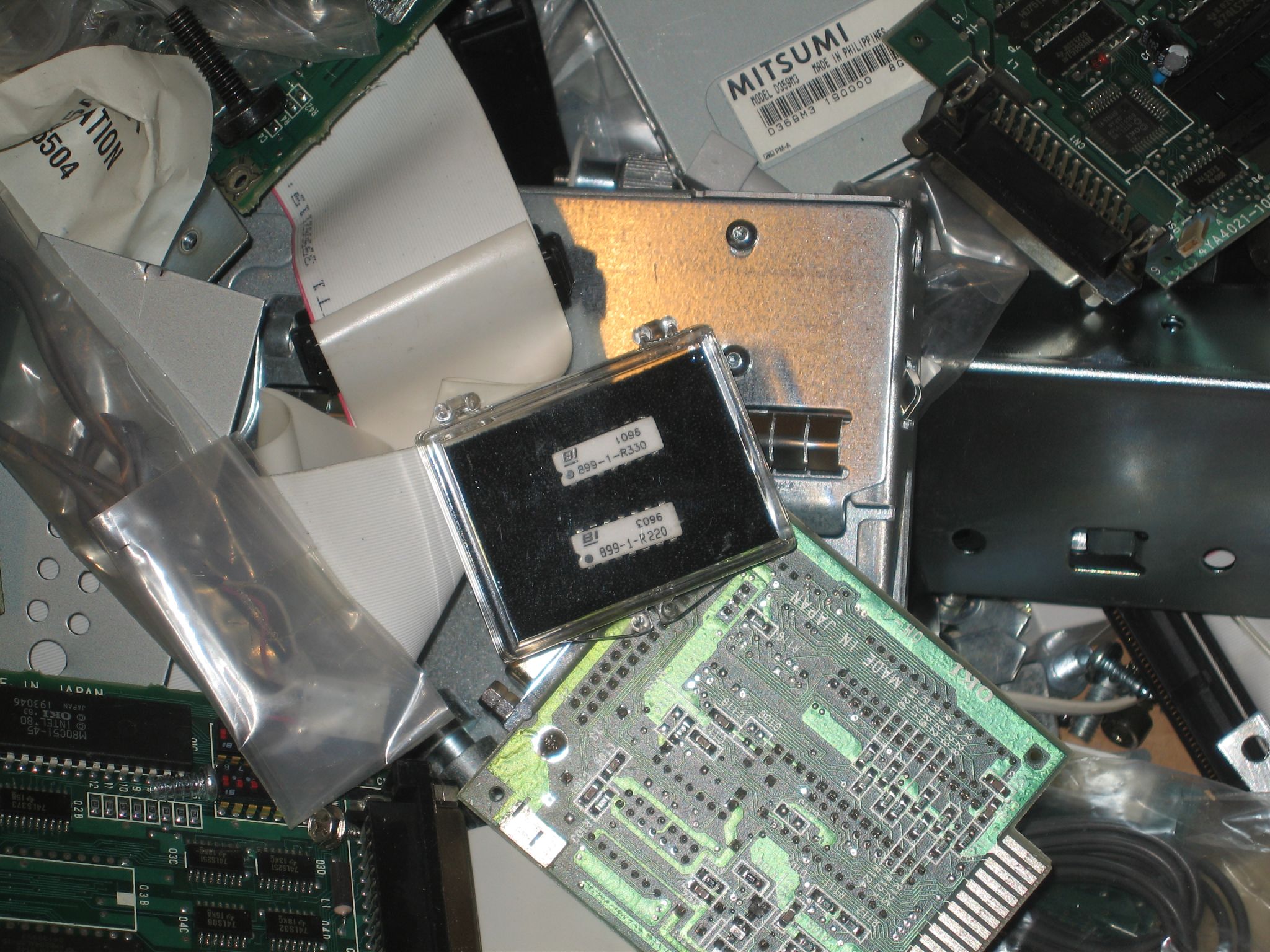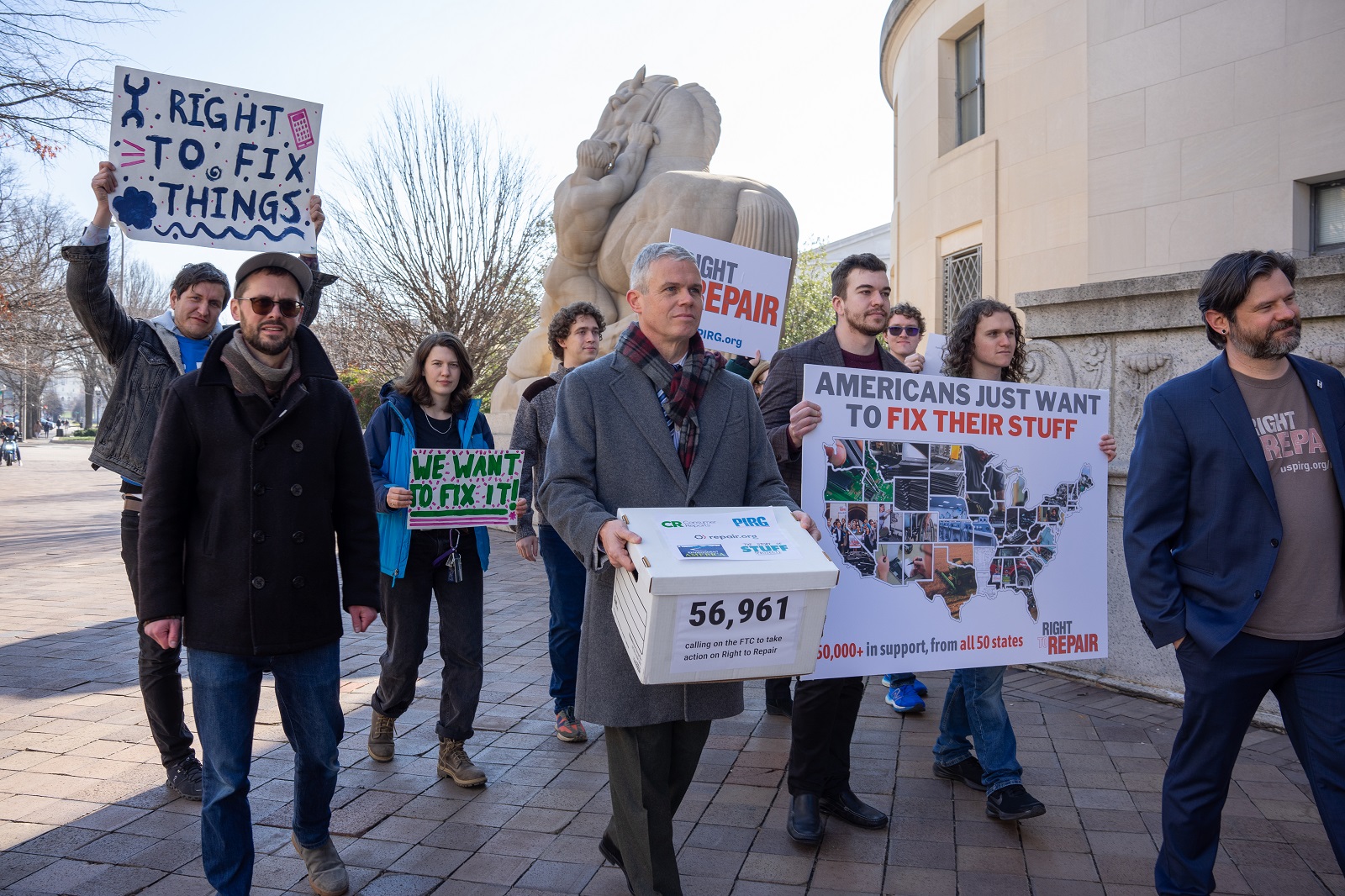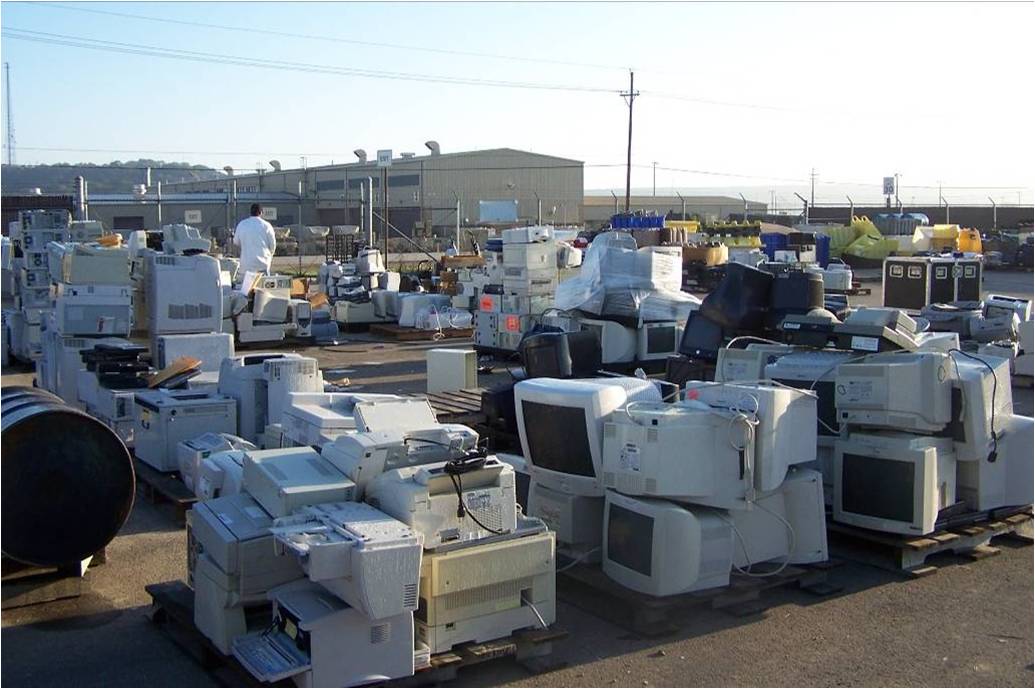
Unsubscribe: Refusing to pay to use what we own
Paywalls in your car, subscriptions for your washing machine. The new subscription models that are coming for your gadgets, as part of our Junked by Design series.

Everything, everywhere, wants you to subscribe.
It’s not just news paywalls and streaming services trying to collect. Monthly fees are crawling out of your browsers and into your devices that never had paywalls before. Car companies tried offering heated seats by subscription, and those features may be starting to push into other industries such as appliances.
The commercial attractiveness of selling someone a product, then making them pay monthly to use various parts of it, is pretty obvious. But what does it mean for consumer rights and the planet if this trend toward subscriptions in everything continues?
Software and internet-dependency replace simple, durable tech
The revenue from subscription models incentivize manufacturers to add software to things that didn’t have it before. In order to charge you monthly to activate and deactivate a feature, the appliance has to connect to the internet and run that feature with software. This requires replacing something as simple as a switch with a software-controlled mechanism.
This process means replacing time-tested technologies with digital controls that are generally more difficult to repair. Any internet-connected software requires ongoing support for security flaws or other compatibility updates. This means more complex, internet-capable appliances are, by nature, more vulnerable, less durable, harder to fix, and frankly, just worse. In the face of a growing e-waste crisis, that’s the last thing we want.
It’s not that all internet-dependent features are pointless, but there appears to be a rush to add paywalled features in a way that undermines our wallets, the planet, and our basic ownership rights.
The Unceasing Spread of Subscription Models
Software-enabled subscriptions have swept the automobile industry for several years. In 2019, BMW began charging users a subscription fee to use Apple CarPlay (though this was scrapped later that year). In 2021, Toyota introduced a subscription fee to use “Remote Connect,” a remote-start key fob. The Drive reported that Toyota was to add the fee to models from 2018, meaning that customers who had Remote Connect included for years were asked to start paying to keep using it. Today, cars made from 2022 onwards can pay for Remote Connect.
BMW made headlines when it announced a plan to charge customers a subscription fee to use their own heated seats. This was later retracted after considerable consumer backlash. However, BMW kept payment options for “on demand” functions like driving and parking assistance.
Mercedes offers better performance and faster acceleration via monthly or yearly subscriptions, or customers can pay a one-time fee for the software needed to accelerate faster, forever – for a minimum price of $1,950.
Software is essentially free to make copies of (it’s more or less copy and paste) so the profit margins of these programs are huge. It’s no wonder this practice keeps spreading to other types of products, including appliances.
A 2023 LG press release states that the company plans to add upgrades and subscriptions to appliances: “The goal is to further evolve LG ThinQ UP appliances that upgrade functions customers need even after purchase and evolve into a ‘Home as a Service’ platform that combines hyper-personalization, subscriptions and smart home services.” These appliances can download features like “Laundry Saver Mode” or “Improved Nighttime Brightness Control.”
The global market for e-commerce subscriptions is expected to increase from around $73 billion in 2021 to some $904 billion in 2026, in part due to the new subscription model.
The problem with adding software
Internet-capable software, the kind necessary for these subscription feature programs, requires ongoing support from the manufacturer, and most have a limited timeframe within which they’ll offer such support. We’ve been campaigning to get companies to support critical software for longer — such as our successful campaign to get Google to support Chromebooks for 10 years.
Yet even if the company intends to maintain support, there’s the risk that it could shut down or go out of business and no longer be able to provide support at all. That’s what happened to customers of the smart home company Revolv, who awoke one day to find all their smart home features were broken.
Even if the device still appears to work, manufacturers may lose interest in providing security updates, making the product vulnerable to digital attacks.
Not only might your too-smart toaster become a cyber security threat, it is undeniably harder to repair than a simpler toaster. As our appliances incorporate more electronics, they are getting more difficult — and expensive — to repair.
Electronic waste is growing at a rapid rate. The last thing we need is to add more discarded devices to the pile that once would have lasted much longer.
We deserve tech that’s Designed to Last
We can push back on this trend to put paywalls in every device we own.
Consumers can vote with our dollars. Consumer backlash has already affected the rollout of some subscription schemes. Refuse to purchase these products, and join with others who are rejecting these developments.
Regulators can enforce laws against ‘tying’. Federal law restricts how companies can try to use one purchase to coerce other purchases. As manufacturers get more aggressive with pushing subscription fees, regulators could push back in cases where manufacturers cross the line.
Lawmakers can establish new protections for ownership in a digital age. There are some basic consumer protections that could rebalance ownership rights. Companies should be required to have a plan for a device after its last update. Some companies open their software for community security support, and others ensure the product can function offline in an acceptable way, but most do not. Software support should not be the reason an otherwise operable product becomes useless — and lawmakers can ensure that manufacturers give consumers options to keep tech in use.
Software and the internet are reshaping the technology in our lives. There are some gains, and some obvious traps. We don’t need a world filled with fragile, insecure devices that constantly harangue us for more money just to operate. However, it’s obvious that manufacturers have an incentive to build those products. If we want better, we’ll need to stand up and push back, together.
Topics
Authors
Meghan Smith
Designed to Last Campaign, Associate, PIRG
Meghan works on the Designed to Last campaign for the PIRG New Economy team. Meghan is from Maine and currently lives in Boston. She likes playing the guitar, singing, running and enjoying the outdoors whenever she can.
Find Out More

Why Microsoft extended Windows 10 support for schools for $1

30 states considering Right to Repair so far in 2024

Oregon (and Google) chooses the Right To Repair


